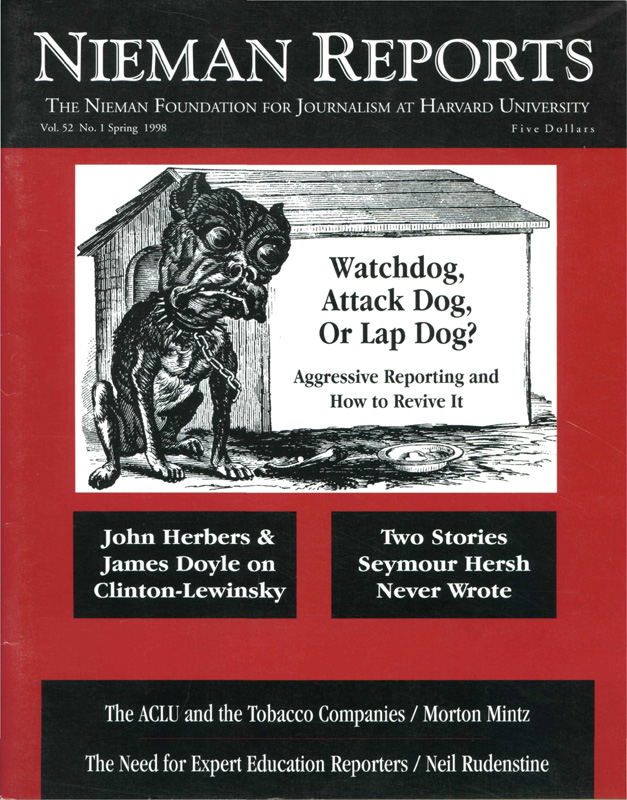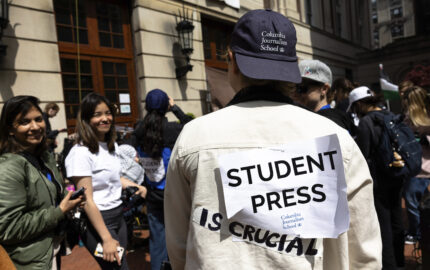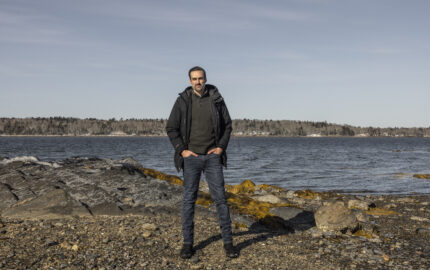
When newspapers start believing what they are told, there is no surer way to cheat a reader. Good reporters never take a politician's word, but verify claims instead. Reporters know that even the most civic-minded corporate CEO's work for stockholders, not the public, so their reports are probed and their actions questioned.
As governments grow and corporations grow, so do community and large private foundations. Foundations, an important group in the nonprofit sector, today grow not only in wealth but also in social and political influence. But newspaper reporting has not caught up with the greater influence foundations wield. For years editors and reporters have tended to take foundation acts and statements at face value and to view their gifts as largesse rather than pursuit of a socio-political strategy. Foundation executive directors are viewed as god-heads in most communities, their boards as men and women of selfless devotion.
With some exceptions such as The Philadelphia Inquirer and The Wall Street Journal, most newspapers don't regularly scrutinize foundations the way they do nonprofit advocacy groups. Newsrooms are busy. And, after all, unless the Cleveland Foundation grants JS10 million to an arts consortium, where's the news in the dozens of other grants to less visible organizations? Foundations often are covered no better than fires; stories are one-day occurrences.
Permit me an example close to home. The Plain Dealer and other community institutions watched Cleveland's two largest foundations play the front in late 1996 for a political move that set up Mayor Michael R. White's takeover of the nearly destroyed school system. The executive directors of the Cleveland and Gund Foundations convened a large committee to recommend school governance changes; and although neither man took direct orders from city hall, their committee recommended with few wiggles what the mayor wanted. And the takeover law that passed the legislature is a good one—maybe the last hope for Cleveland's intensive-care school system. And The Plain Dealer covered the effort thoroughly, we thought.
Here is what we missed:
- We never pressed the executive directors hard enough about their intentions. With statements bordering on the disingenuous they talked of a full airing of community views. Hearings were never extensive.
- The committee's deliberations gave short shrift and ridicule to those who wanted more deliberate and participatory hearings.
- Although hearings were conducted by the Ohio Legislature, their process ran parallel to the ad hoc committee's, and the public was truly confused about which was the real democratic process.
Now, not wanting this to be a Cleveland shaggy dog story, let me broaden the point.
These two executive directors, who care greatly about Cleveland, behaved the way many civic-minded foundation leaders behave: show the flag, sound the bugle, lead the charge. Admirable! The nonprofit sector is free of stock holders' shackles and political avarice. Many foundation executives think they're free to help govern.
It's time for skepticism and caution.
As public policy, should foundations give away money and also be civic conveners in alliance with political ends? And if foundations become civic conveners, to whom are they responsible?
Participatory politics in this country needs to be revived. But while the ballot box has weakened as the major place where public policy is decided, it would be dangerous to believe that a web of foundations (run usually by noble elitists)can become the new town hall.
The Winter 1997 issue of National Civic Review, a quarterly of the National Civic League, was devoted to nonprofits, philanthropy and the civic life. It was rich with information, particularly the thoughts of Lamar Alexander (former Tennessee governor) on making foundation dollars work faster, and a warning by Pablo Eisenberg (Executive Director of the Center for Community Change) that philanthropy is compromised when it becomes too much like corporations and politics.
In one Review article, however, Council on Foundations President Dorothy S. Ridings stakes out a broad mission for foundations that just may stretch intellectual energy and political savvy too far. Ridings believes "foundations...can create friendly settings, unburdened by political baggage, where thoughtful people can seek common ground on contentious issues and join together in common strategies of action."
The rub comes at "common strategies of action." Foundations cannot pursue action too far without becoming entangled with one side or another. Politics, properly played, is a rough game. Foundations do better to tend their investments and direct grants as they choose. They can undertake bipartisan research and provide staff time for interpretation.
Increasingly, however, foundations have tried on the shoes of the agenda setters. The fit is ill, for the voice of the foundation is muted when it allies itself with the agendas of elected officials. Even the best politicians always have an eye on that short-term need for survival. In the Review, Alexander makes a critical point:
"Today too many precious charitable dollars are spent on too much study, too much talking, too little service, and too little hard-nosed evaluation of what people get for their money. There is too much distance between donors and donees. Some charities have become too dependent on government. Too much of organized philanthropy ...dreams of changing the world instead of fixing tangible problems...."
Philanthropy as organized in the United States is unique. It is blessed by tradition and sustained by the tax code. Especially as nonprofit foundations drift more toward politics as a goal and a corporate structure as their style, newspapers need to view them as they view city hall. Reporters should:
- Learn everything they can about a foundations executive director, from personality and friendships to salary. Document outside activities.
- Find out who the foundation's staff sees for lunch and weekend picnics.
- Determine who the intellectual and political heavyweights are on the foundation staff.
- Document the nature of recurring grants.
- Interview regularly the grant recipients.
- Track any formal or informal alliances with political and civic groups.
- Know the board of directors. Who are they,and what are their alliances? Interview them, not just the staff.
The public interest requires that foundations get regular, more sophisticated coverage from local, regional and national newspapers. Such a change in practice will cause wounded consternation in many foundation suites, long comfortable and clubby. They are not used to scrutiny and understandably will wonder why reporters are showing up with tough questions. It's unfortunate, really, that journalists have waited so long to focus on America's foundations. But as they become richer and as more assume political roles, old-fashioned reporting is needed.
And old-fashioned reporters don't believe what they are told, only what they can prove.  David Hall became Editor of The Cleveland Plain Dealer in April of 1992 after four years as Editor of The Bergen Record in northern New Jersey. Before that he was Editor of The Denver Post, which won the 1986 Pulitzer Prize Gold Medal for Public Service on his watch. Hall and his wife, Suzanne, live in the Cleveland suburb of Chagrin Falls.
David Hall became Editor of The Cleveland Plain Dealer in April of 1992 after four years as Editor of The Bergen Record in northern New Jersey. Before that he was Editor of The Denver Post, which won the 1986 Pulitzer Prize Gold Medal for Public Service on his watch. Hall and his wife, Suzanne, live in the Cleveland suburb of Chagrin Falls.


